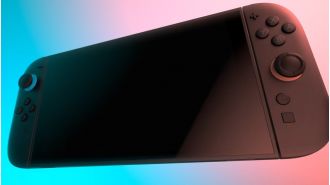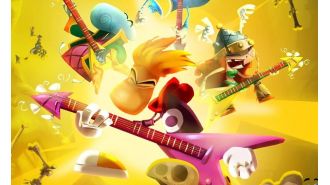The Xbox dream has died after 24 years of unfulfilled potential.

It's been a rough week for Xbox, that's for sure. As a long-time Xbox owner, I can't help but feel like this is the beginning of the end for the brand. It's hard not to look back at the last 25 years and think about all the missed opportunities. It's sad to say, but it seems like Xbox will now be known more as a third-party publisher, like EA or Ubisoft, rather than a console manufacturer on the same level as Sony and Nintendo.
I speak from experience, as someone who has owned an Xbox 360, an Xbox One, and now an Xbox Series X/S. I even sold my Series X/S after just a year, once I realized that I had backed the wrong horse. But let's be honest, even if this week hadn't happened, I probably wouldn't have bought another Xbox. And now, after seeing how poorly Microsoft has handled everything, I feel even more confident in my decision to move on from the brand.
I don't take any pleasure in seeing the fallout from the mass layoffs this week, especially since Xbox head Phil Spencer still has his job. But it's hard not to feel disappointed and shocked by how badly Microsoft has handled everything. They've been in the gaming industry for so long, yet it seems like they haven't learned anything. It's hard to believe that, apart from a brief period in the mid-2000s, Xbox has been nothing but a failure.
The original Xbox was released towards the end of the sixth generation of consoles and could arguably be considered the most successful one, since it didn't come in last place like the GameCube did. But both were far behind the PlayStation 2, so Microsoft quickly dropped support for the console and focused on releasing the Xbox 360 as soon as possible.
This strategy seemed to work, as the Xbox 360 had a year head start on the PlayStation 3. And more importantly, it brought some major innovations to the table. With the success of online play and the popularity of Halo, Xbox had a major advantage over PlayStation. The PlayStation 2 didn't even have built-in online capabilities until Sony was forced to experiment with it due to Microsoft's success.
The Xbox 360 took full advantage of this and not only made online play a core feature, but also introduced digital downloads, indie games, and achievements. It was a new and exciting console, while the PlayStation 3 was late to the party, overpriced, and lacking in compelling exclusives.
But sadly, the Xbox 360's golden age only lasted about five years. During the same generation, the Wii was dominating the market and Microsoft couldn't resist trying to copy its success, but with "better" technology. This led to the release of Kinect in 2010, which was the beginning of the end.
Kinect never really worked properly, and it never had any good games. But Microsoft became so obsessed with it that they bundled it with the Xbox One, making the console overpriced, underpowered, and more focused on TV than gaming. It was a disaster, to say the least.
But even the Xbox 360 had its issues. Thanks to rushing it out early, the infamous "red ring of death" cost Microsoft over a billion dollars to fix. And even at the end of its generation, the Xbox 360 was still beaten by the Wii and PlayStation 3. Then the Xbox One came along and was ultimately beaten by the PlayStation 4 and Nintendo Switch. And now, the Xbox Series X/S is once again falling behind.
And yet, Phil Spencer is still at the helm of Xbox. It's hard not to think about what he's accomplished in the 11 years he's been in charge. Two failed consoles and no improvement in first-party output, except for acquisitions like Activision Blizzard and Bethesda, which cost billions. But it seems like Spencer didn't realize that these acquisitions would come with strings attached.
Now, almost every month, we see more and more of what made Xbox a console manufacturer being taken away. And it's clear that all that will be left is Activision Blizzard and Bethesda – two companies that were already doing just fine on their own, before Microsoft bought them.
With this week's layoffs and game cancellations, it's hard not to see this as the end of an era. And it's not just because of the layoffs, but also because almost half of the 9,100 job cuts at Microsoft were from Xbox. It's clear that the company doesn't prioritize gaming, no matter how many gaming T-shirts their executives wear. Xbox had so much potential, but it's sad to say that it's now dead. And in reality, it was barely even alive in the first place.
14 Views






